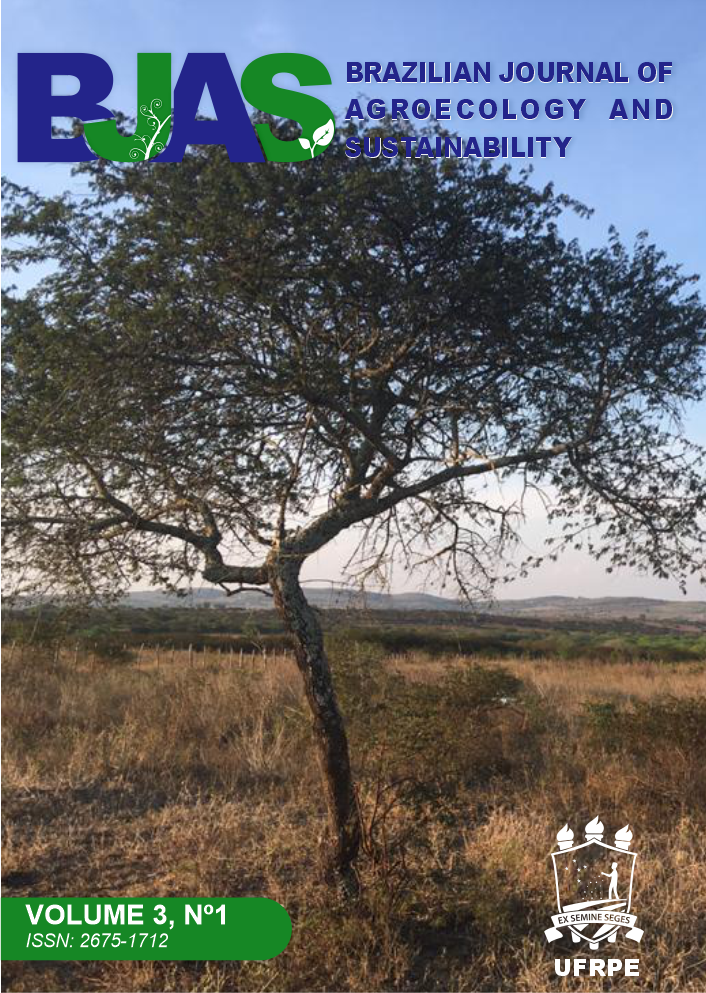EVALUATION OF AN ALTERNATIVE SMALL FAMILY AGROECOLOGICAL SYSTEM ALTERNATIVE TO THE PREDOMINANT FORMS OF COFFEE PRODUCTION IN HUATUSCO, VERACRUZ
DOI:
https://doi.org/10.52719/bjas.v3i1.4205Abstract
The integration of production systems under agroecological principles allows the generation of new knowledge to achieve Sustainability; and, in a scenario of demographic growth, climate change and degradation of natural ecosystems, agroecology constitutes an alternative that allows more food to be generated and done in a sustainable way. In the context of coffee production in Mexico, coffee growing is important due to the number of producers who are dedicated to it, in 2017 the participation of 500 thousand coffee growers throughout the country was registered, and this is where it lies from the point from a social point of view, the importance of coffee. In the central zone of the high mountains of the state of Veracruz, southeast of Mexico, Arabica coffee is mainly produced and this is a priority crop since it supports economically the great majority of its population; This economic dependence on a single crop produces a harmful effect on the current assets of the region, a period with high income during the harvest (November to March) and a detriment to its financial conditions in the remaining period. The present descriptive case study is presented, the objective of which is to emphasize the importance of smallholder agroecological systems as an alternative for the current management of coffee production systems in the central region of the high mountains of the state of Veracruz. Keywords: Smallholding. Sustainability. Coffee. AgroecologyDownloads
References
Altieri, M., & Nicholls, C. (2012). Agroecología: única esperanza para la soberanía alimentaria y la resiliencia socio ecológica. [Conferencia de las Naciones Unidas sobre el Desarrollo Sostenible (Rio+20)]. SOCLA. Río de Janeiro, Brasil.
Centro de Estudios para el Desarrollo Rural Sustentable y la Soberanía Alimentaria. (2018). El café en México: diagnóstico y perspectiva. http://www.cedrssa.gob.mx/files/10/30El%20caf%C3%A9%20en%20M%C3%A9xico:%20diagn%C3%B3stico%20y%20perspectiva.pdf
Cerdán C. R., Rebolledo, M. C., Soto, G., Rapidel, B., & Sinclair, F. L. (2012). Local knowledge of impacts of tree cover on ecosystem services in smallholder coffee production systems. Agricultural Systems, 110, 119–130. http://dx.doi.org/10.1016/j.agsy.2012.03.014
International Coffee Organization. (2012). Trade statistics. http://www.ico.org/trade_statistics.asp?section=Statistics.
Jiménez Guethón, Reynaldo, & Antón Torres, Niurka Alina. (2014, Mayo-Ago.). Agroecología y Seguridad Alimentaria: Una visión desde Cuba. Estudios del Desarrollo Social: Cuba y América Latina, 2(2), 62-76. http://www.revflacso.uh.cu/index.php/EDS/article/view/49
Lechthaler Filippo, Vinogradova Alexandra (2017) The climate challenge for agricultura and the value of climate services: Application to coffee-farming in Perú. European Economic Review, 94, 45-70. doi.org/10.1016/j.euroecorev.2017.02.002.
Migliorati, Mario. (2016, diciembre). Agroecología: Una alternativa viable. Revista de Investigaciones Agropecuarias, 42(3), 226- 233.
Moguel, P., & Toledo, V. (1999). Biodiversity conservation in traditional coffee systems of Mexico. Conservation Biology, 13(1), 9–25.
The Climate Institute. (2016). A Brewing Storm: The climate change risks to coffee. http://www.climateinstitute.org.au/coffee.html
Venegas, C., Gómez, B., Infante, A., & Venegas, R. (2018). Manual de transición para la agricultura familiar campesina (serie: Manuales y Cursos, 12). Santiago de Chile: INDAP, FAO.
Downloads
Published
How to Cite
Issue
Section
License
Copyright (c) 2021 Brazilian Journal of Agroecology and Sustainability

This work is licensed under a Creative Commons Attribution-NonCommercial-ShareAlike 4.0 International License.





